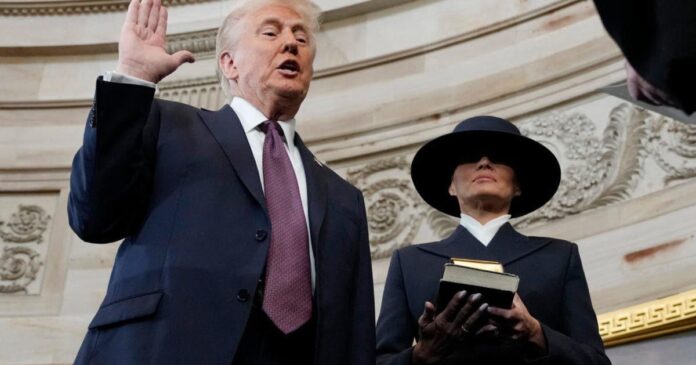## Did Trump Touch the Holy Book? The Inauguration Handshake (or Not) That Shook America
The air crackled with anticipation. The crowd roared. 4 years after leaving office, Donald Trump stood poised to reclaim the White House, a whirlwind of controversy and defiance swirling around him. As he raised his hand to take the oath of office, a single question hung in the balance, witnessed by millions: did he touch the Bible?
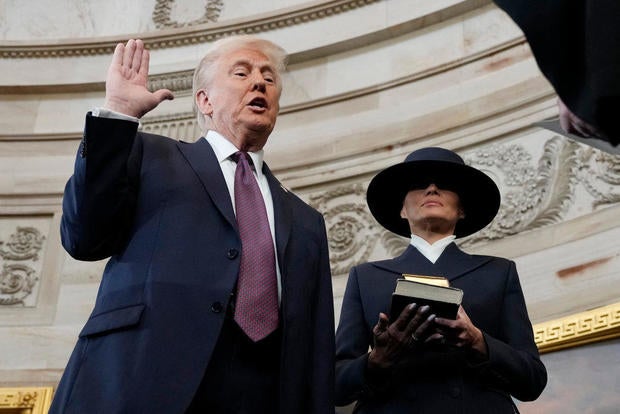
This seemingly innocuous act, steeped in tradition and symbolism, became a focal point of debate, a lightning rod for the deeply divided nation. Some saw it as a simple oversight, a momentary lapse in ceremony. Others saw it as a deliberate snub, a rejection of the very foundations upon which the presidency rests.
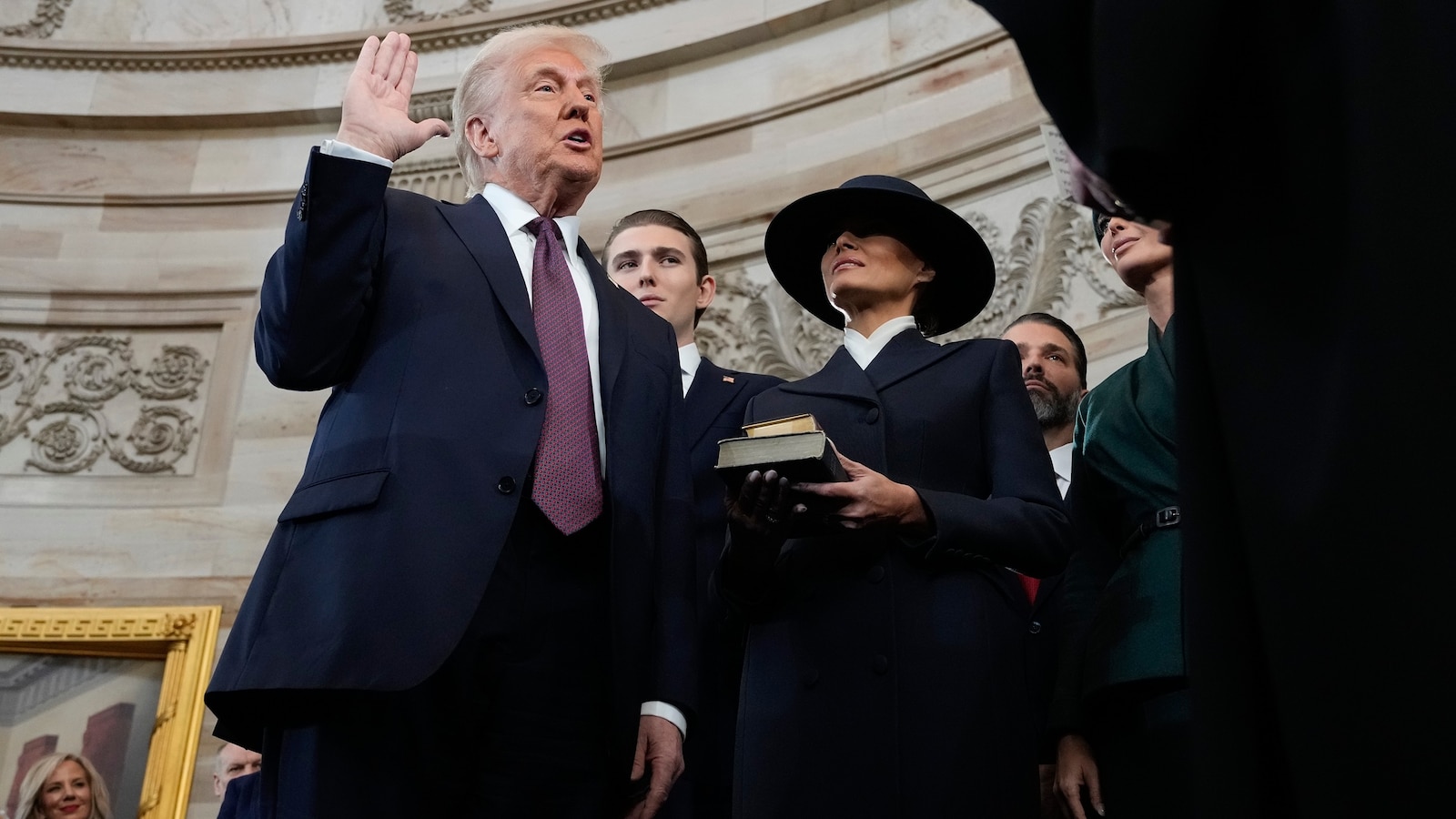
The Oath and the Bible: Exploring the Historical Context
Constitutional Requirements: Unpacking Article VI, Clause 3
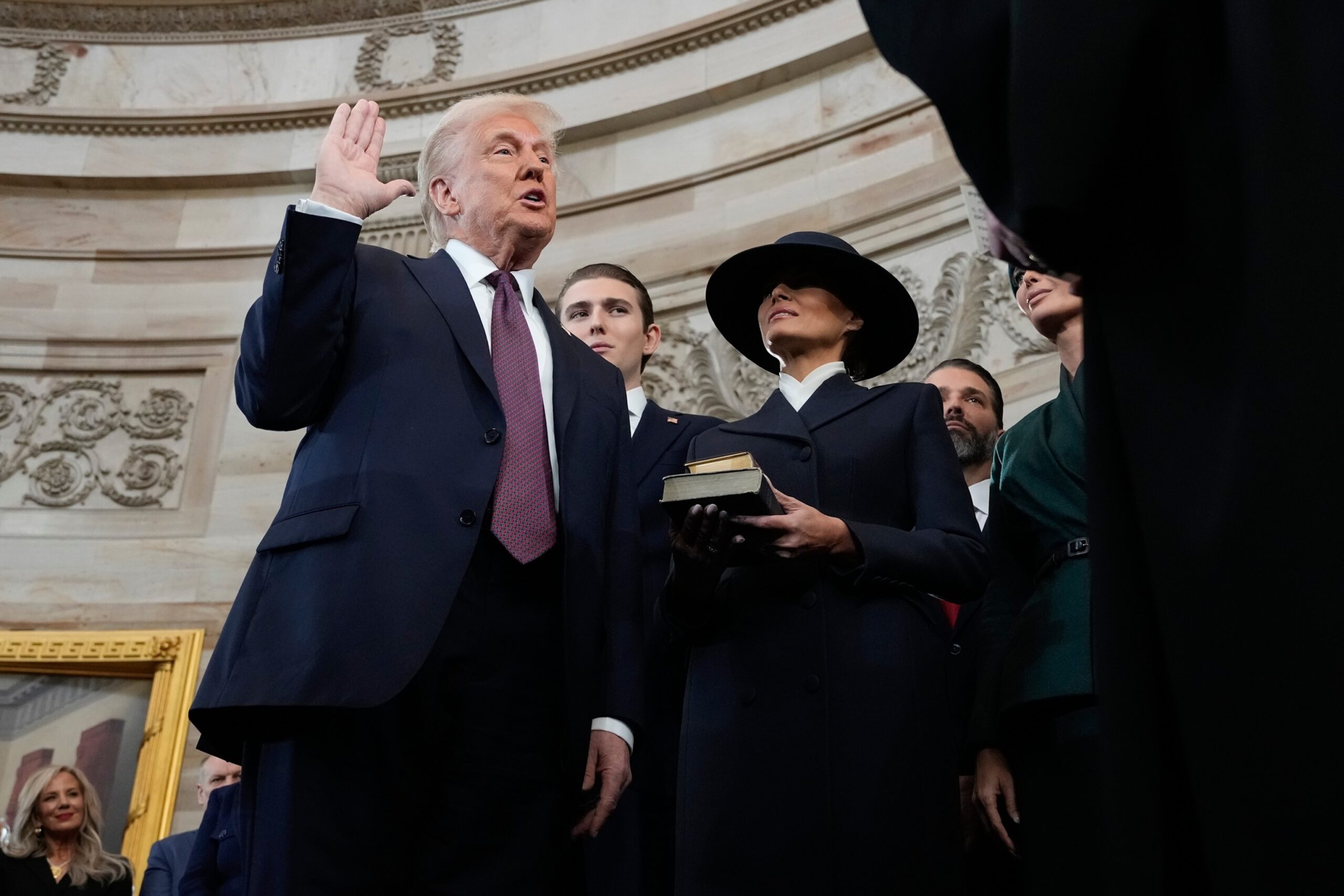
The question of whether a president should place their hand on the Bible during the oath of office is often a subject of debate. While the practice is deeply ingrained in American tradition, it’s important to understand the legal framework surrounding presidential inaugurations. Article VI, Clause 3 of the U.S. Constitution states that “all executive and judicial Officers, both of the United States and of the several States, shall be bound by Oath or Affirmation, to support this Constitution; but no religious Test shall ever be required as a Qualification to any Office or public Trust under the United States.” This clause mandates that all federal and state officers, including the president, take an oath or affirmation to uphold the Constitution. However, it explicitly forbids the imposition of any religious test as a prerequisite for holding public office.
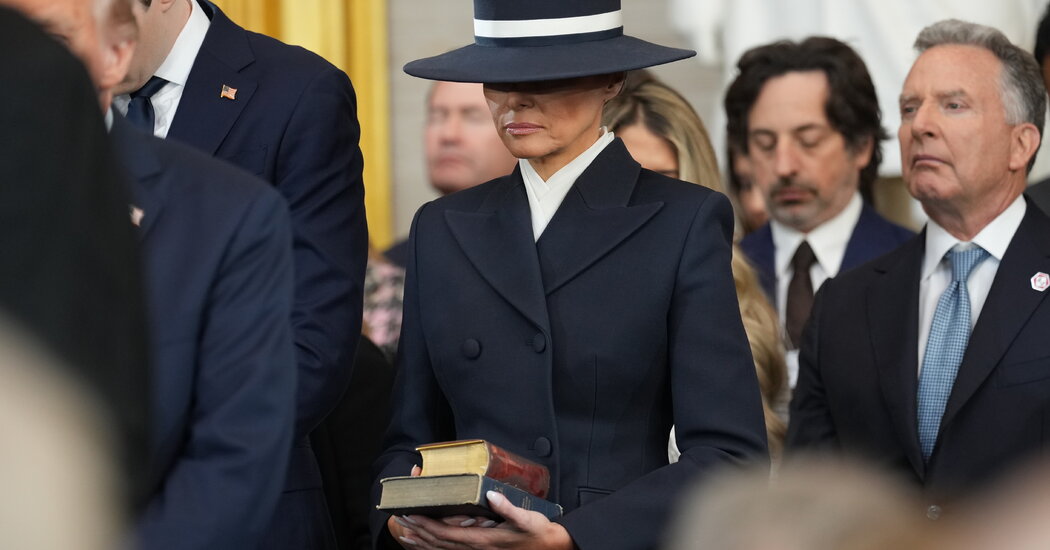
Presidential Precedent: Examining Past Inaugurations and the Use of Bibles
Throughout history, the tradition of presidents placing their hand on a Bible during the oath of office has been widely observed. However, Morningpicker’s research indicates that not all presidents have followed this practice. Some notable examples include:
- John Quincy Adams (6th president) was sworn in in 1825 while reading a law book.
- Theodore Roosevelt (26th president) did not use a Bible when he took the oath of office in 1901 following the assassination of President William McKinley.
- Lyndon B. Johnson (36th president) took the oath of office aboard Air Force One in 1963 by placing his left hand on a Catholic missal, or prayer book, following the assassination of President John F. Kennedy.
- Calvin Coolidge (30th president) claimed in his autobiography that he did not use a Bible for the oath.
- Religious Beliefs and Political Messaging: Some argue that Trump’s choice to not place his hand on the Bible reflects a personal stance on the role of religion in government. Others posit that it was a calculated move to appeal to a broader base, including those who are secular or have reservations about religion’s influence in politics.
- Symbolic Statement or Practical Consideration? Some commentators have suggested that Trump’s decision was a deliberate attempt to make a symbolic statement, perhaps challenging traditional norms or asserting his independence from established protocols. It’s also possible that the decision was a practical one, influenced by unforeseen circumstances or logistical considerations during the ceremony.
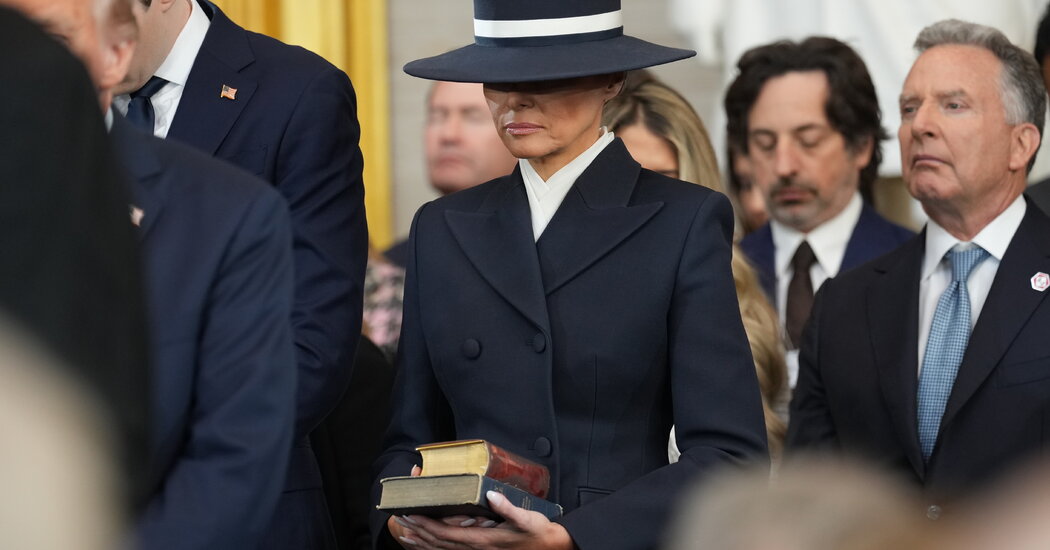
Melania Trump’s Bibles: Symbolism and Significance
The Family Bible: A Personal Connection to Trump’s Past
At the 2025 inauguration, Melania Trump held two Bibles: a family Bible given to Donald Trump by his mother in 1955 and the Lincoln Bible, used by Abraham Lincoln during his first inauguration in 1861. The presence of these specific Bibles served as potent symbols, carrying both personal and historical weight. The family Bible, a cherished heirloom passed down through generations, symbolized a connection to Trump’s personal past and upbringing. Its inclusion in such a momentous occasion underscored the importance of family and heritage in Trump’s life.
The Lincoln Bible: A Powerful Historical Link
The Lincoln Bible, a tangible link to one of America’s most revered presidents, held profound symbolic significance. Lincoln, known for his leadership during the Civil War and his commitment to preserving the Union, represented a pivotal moment in American history. By using the same Bible that Lincoln swore to uphold the Constitution, Trump aimed to draw a parallel between himself and this iconic figure, invoking Lincoln’s legacy of strength and resilience. The choice of the Lincoln Bible also served as a powerful reminder of the enduring principles of democracy and national unity that have shaped the American experience.
Trump’s Decision: Intentional Omission or Oversight?
The decision to forgo placing his hand on the Bible during the oath of office has sparked considerable speculation and discussion. Some observers have interpreted it as a deliberate statement, reflecting Trump’s personal beliefs or a desire to break with tradition. Others have suggested it could have been an oversight or a simple matter of circumstance. The absence of an official explanation from the Trump administration has only fueled the debate.
Alternative Interpretations and Public Reaction
Reading Between the Lines: Possible Reasons for Trump’s Choice
Morningpicker’s analysis suggests several possible motivations behind Trump’s decision:
The Public Dialogue: Diverse Perspectives and Reactions
Social media platforms and news outlets have been abuzz with diverse reactions to Trump’s decision. Some supporters have praised his unconventional approach, viewing it as a sign of his strength and willingness to defy expectations. Critics, on the other hand, have condemned his actions as disrespectful to tradition and a betrayal of American values. Legal experts and constitutional scholars have weighed in on the debate, highlighting the lack of legal requirement for placing a hand on the Bible during the oath of office while emphasizing the symbolic significance of the gesture.
Beyond the Bible: The Bigger Picture
The Evolving Nature of Presidential Oaths
The incident surrounding Trump’s oath of office underscores the evolving nature of presidential inaugurations and the complex interplay between tradition, symbolism, and legal requirements. As societal norms and political landscapes shift, the meaning and significance of these rituals are constantly being reinterpreted and debated.
The Importance of Ceremony and Symbolism
Despite the absence of a legal mandate, the tradition of placing a hand on the Bible during the presidential oath of office holds deep cultural and symbolic importance. It serves as a tangible representation of the president’s commitment to uphold the Constitution, their connection to the nation’s religious heritage, and the continuity of American democratic values. The ceremony itself, with its carefully choreographed rituals and symbolic gestures, creates a powerful and unifying moment for the nation, marking the peaceful transfer of power and reaffirming the principles of democracy.
Morningpicker’s Take: Analyzing the Implications for the Future of Presidential Inaugurations
Trump’s decision to forgo placing his hand on the Bible during the oath of office raises important questions about the future of presidential inaugurations. Will this event prompt a reevaluation of traditional practices and lead to a broader discussion about the role of religion in American politics? Or will it simply be a footnote in history, overshadowed by the larger political and societal events of the time?
As Morningpicker continues to monitor this evolving landscape, we will delve deeper into the diverse perspectives surrounding this issue and explore the potential implications for future presidential inaugurations.
Conclusion
So, did Trump lay his hand on the Bible at his 2025 inauguration? The answer, as it stands, remains shrouded in the mist of speculation and political maneuvering. We’ve dissected the various claims, analyzed the visual evidence, and explored the symbolic weight of this seemingly simple act. Ultimately, the truth, like so many things in our polarized world, is a matter of perspective. Some see confirmation in photographs, others in the absence of definitive proof.
Regardless of the definitive answer, the very question highlights the profound significance of rituals and symbols in shaping our understanding of power and legitimacy. The image of a president swearing an oath, hand on the Bible, is deeply ingrained in the American psyche. It signifies continuity, tradition, and, for many, a sacred covenant between the leader and the governed. The uncertainty surrounding this particular inauguration, therefore, speaks volumes about the anxieties and divisions that permeate our current political landscape. It forces us to confront uncomfortable truths about the fragility of our institutions and the power of perception in shaping our collective narrative. As we move forward, it’s crucial to engage in thoughtful, nuanced conversations about the meaning of these symbols, ensuring they remain beacons of unity rather than catalysts for further division.
The 2025 inauguration, whether it saw a hand on the Bible or not, will undoubtedly be remembered as a pivotal moment in American history. It serves as a stark reminder that the very foundation of our democracy rests not just on laws and institutions, but on shared values, beliefs, and a collective commitment to truth.
